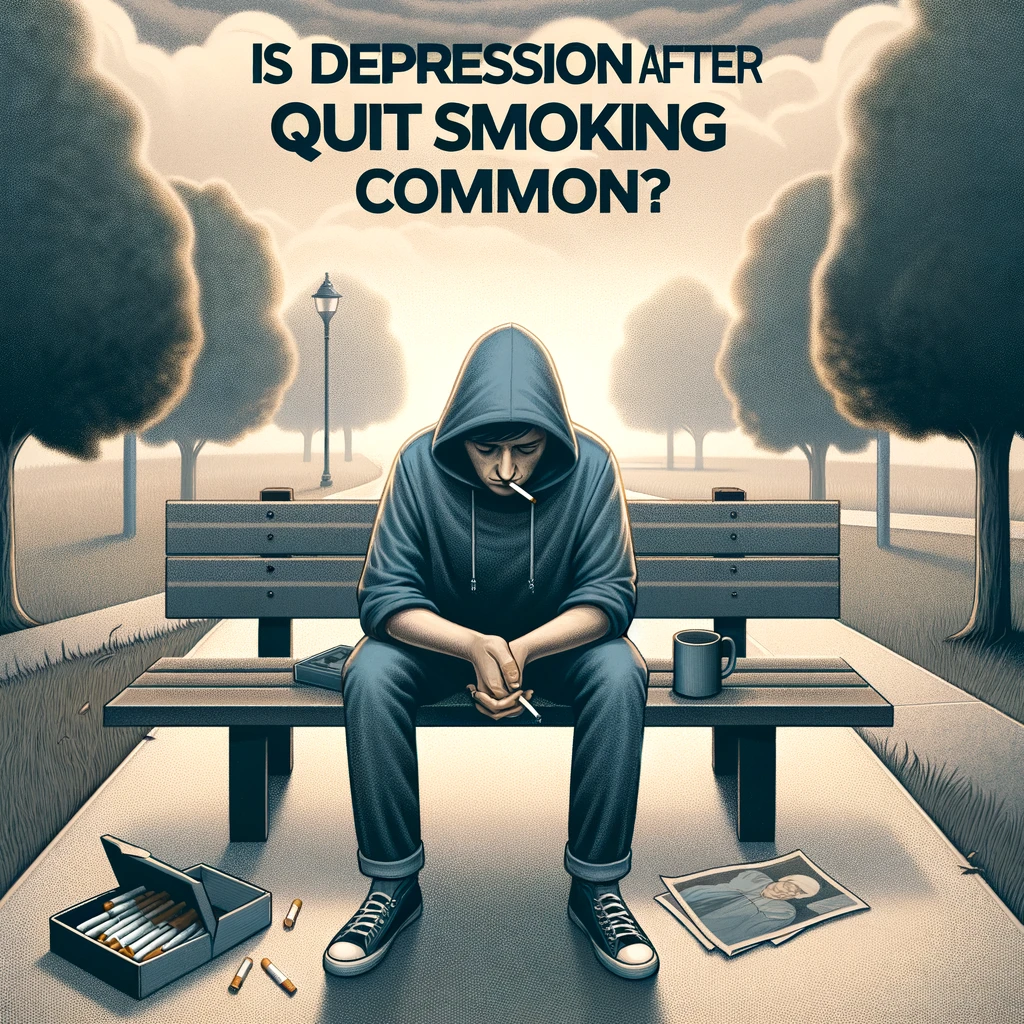People who do not normally suffer from depression sometimes report a brief bout after quitting.
People who have suffered clinical depression in the past frequently experience it beginning in the first week after quitting smoking and lasting from a few weeks to several months.
Depression is often quoted as a cause of relapse.
In one study by Marlatt & Gordon, 43% of relapsed smokers indicated that negative mood precipitated their relapse.
Therefore, it is a good idea to obtain treatment for depression and smoking cessation concurrently.
What causes depression after quitting?
The reasons people experience depression after quitting smoking are not well understood, and this is the subject of much research. However, research suggests that it can be caused by a combination of the following:
Using cigarettes to cope with stress and emotions. Some people haven’t yet replaced the cigarettes with healthy coping strategies. Not being aware of the depression because smoking masked it.
Cigarette smoke does have some properties similar to anti-depressant medications, possibly affecting dopamine and adrenergic systems, as well as causing cortical arousal.
Using nicotine to relieve the effects of stress. When depressed, people are more sensitised to stress.
Experiencing a feeling of loss, or grieving, such as losing one’s “best friend.”
Experiencing depression caused by smoking.
Smoking may actually cause depression, because of the chronic exposure of certain parts of the brain to chemicals.
Because of the anti-depressant qualities of cigarettes, people may not actually feel the depression until they quit.
What can you do?
- Replace smoking with other healthy coping strategies.
- Get physically active for 20-30 minutes at least 3 times a week to reduce stress and improve mood.
- Learn about Cognitive Behavioural Therapy and Self-Talk, which are simple drug-free ways to help with depression.
- Be patient with yourself.
- Notice and reward yourself for your successes.
- Talk with others.
- Call us right away and talk to one of our therapists if you are still having difficulty after using a self-help approach.
What if I have been previously diagnosed with clinical depression?
People who have been diagnosed with clinical depression in the past may be at higher risk, when quitting smoking.
It is a good idea to obtain treatment for depression and smoking cessation concurrently.
Preliminary research has shown that cognitive-behavioural approaches to depression management may help people quit smoking.People who have been diagnosed with clinical depression and are taking medications, such as anti-depressants, should speak to their doctor if the depression worsens.
Sometimes slight adjustments to medications are necessary after quitting.
Imagine Laserworks
Get a personal consultation.
Feel free to contact us nearest to your location







